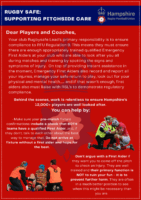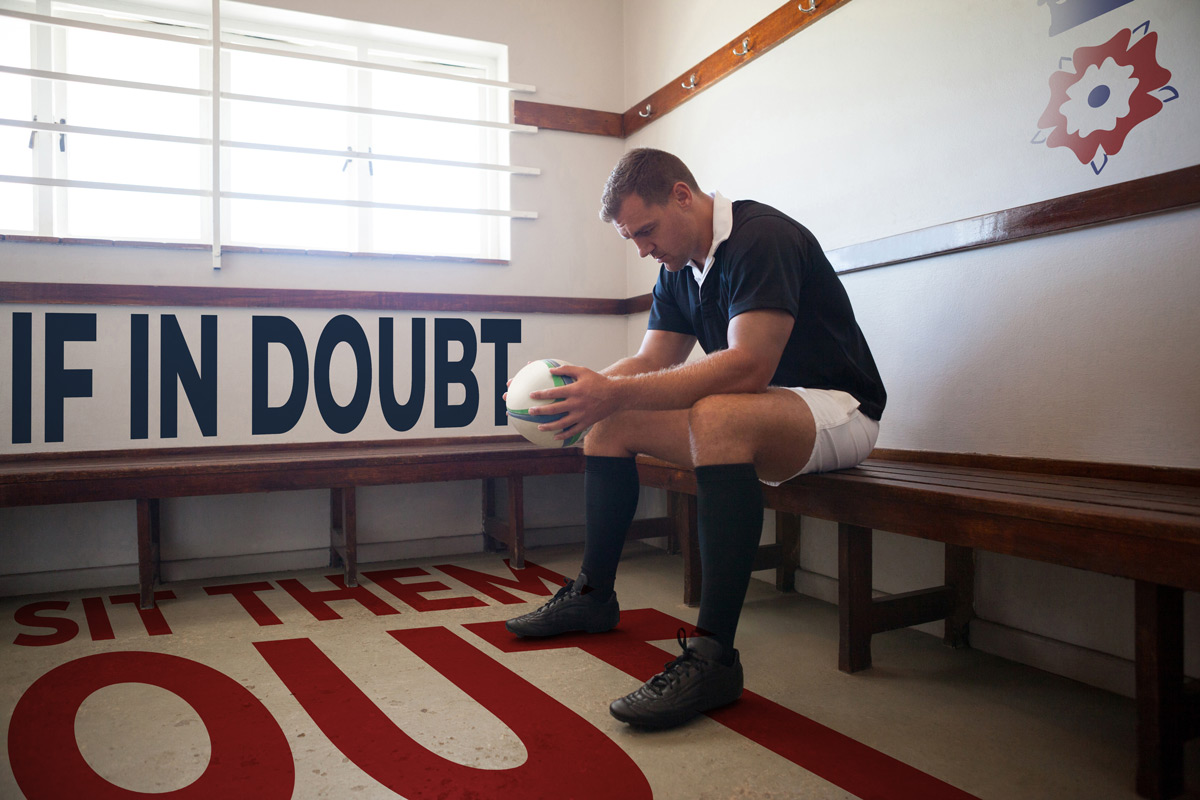First Aid & Injury Management
Ensuring the safety and well-being of players is a top priority for every rugby club. This page provides essential guidelines, resources, and procedures to effectively manage first aid and injuries, promote player welfare, and comply with RFU regulations.
Emergency Preparedness
- Ensure there is always access to a telephone in the clubhouse to summon emergency assistance immediately.
- If training occurs away from the clubhouse, confirm mobile signal availability as part of your First Aid Risk Assessment.
Medical Emergency Action Plan (MEAP)
Every club must maintain a Medical Emergency Action Plan (MEAP) that includes:
- First Aid and Emergency protocols.
- Steps for handling injuries and accidents.
- Identification of first aiders for each age group or event.
- Defibrillator instructions (if available).
- Concussion Guidance: Refer to RFU’s concussion resources.
The MEAP should be updated annually and shared with all volunteers, staff, and committee members.
Injury Reporting & Management
- Record all injuries requiring first aid with the team’s first aider and report to the Club RugbySafe Lead as needed.
- Concussions: Must be reported to HRFU within 48 hours using the online form.
- Serious Injuries: Include those requiring hospitalisation, medical follow-up. These must be reported to the RFU via the Reportable Injuries Form and sent to the RFU, with copies to the County Office and CB RugbySafe Lead.
First Aid Resources
Visit RFU Player Welfare – First Aid & Injury Reporting for:
- RFU Reportable Injuries Form.
- Howdens Online Risk Assessment tool.
- ProActive Injury Reporting App.
- MEAP template.
- Community Rugby guidelines for Pitchside First Aid & Immediate Care Provision for training, matches, and events.
- Information about Emergency First Aid & Immediate Care training, including EFARU courses and role descriptors
- Download and share our EFA Player and Coach support letter
First Aid Training Requirements
- Regulation 9 mandates a minimum ratio of 1 qualified Level 3 Emergency First Aider per 40 players for rugby activities. Click here to find RFU information on Pitch Side First Aid and Immediate Care.
- Online CPDs available:
- Managing Pitchside First Aid – a practical application of your First Aid Skills
- Managing Post-Injury Return to Play – a closer look at injuries and healing times.
- Understanding Injury, Pain and Fear – managing this complex relationship
- For those who are already trained in emergency first aid but have NOT completed a RFU First Aid course, an ‘in-service’ form can be complete by their employer: Emergency First Aider role – inservice form
For booking details or assistance, contact rugbysafe@hampshirerfu.com
Concussion Management
- Players with head injuries showing signs of concussion must be removed from play and follow the Graduated Return to Sports (GRAS) protocol.
- Once a player gets to the stage in their return to play after a concussion where they can return to contact rugby, a managed Stage 5 Player assessment may be undertaken be a qualified coach and a qualified Emergency First Aider. Please seek advice on doing this if it is your first time.
- Always monitor for concussion symptoms during and after games.
- Resources can be found at https://www.englandrugby.com/run/player-welfare/headcase:
- Rationale for concussion decision-making
- GRAS Programme Booklet
- GRAS Return to Play
- HEAD CASE – Stage 5 HRFU Managed Player Assessment Outline
- HRFU Concussion GRAS Flowchart
Encourage players, coaches, and parents to complete the RFU’s Concussion E-learning Module to increase awareness and improve player welfare.




